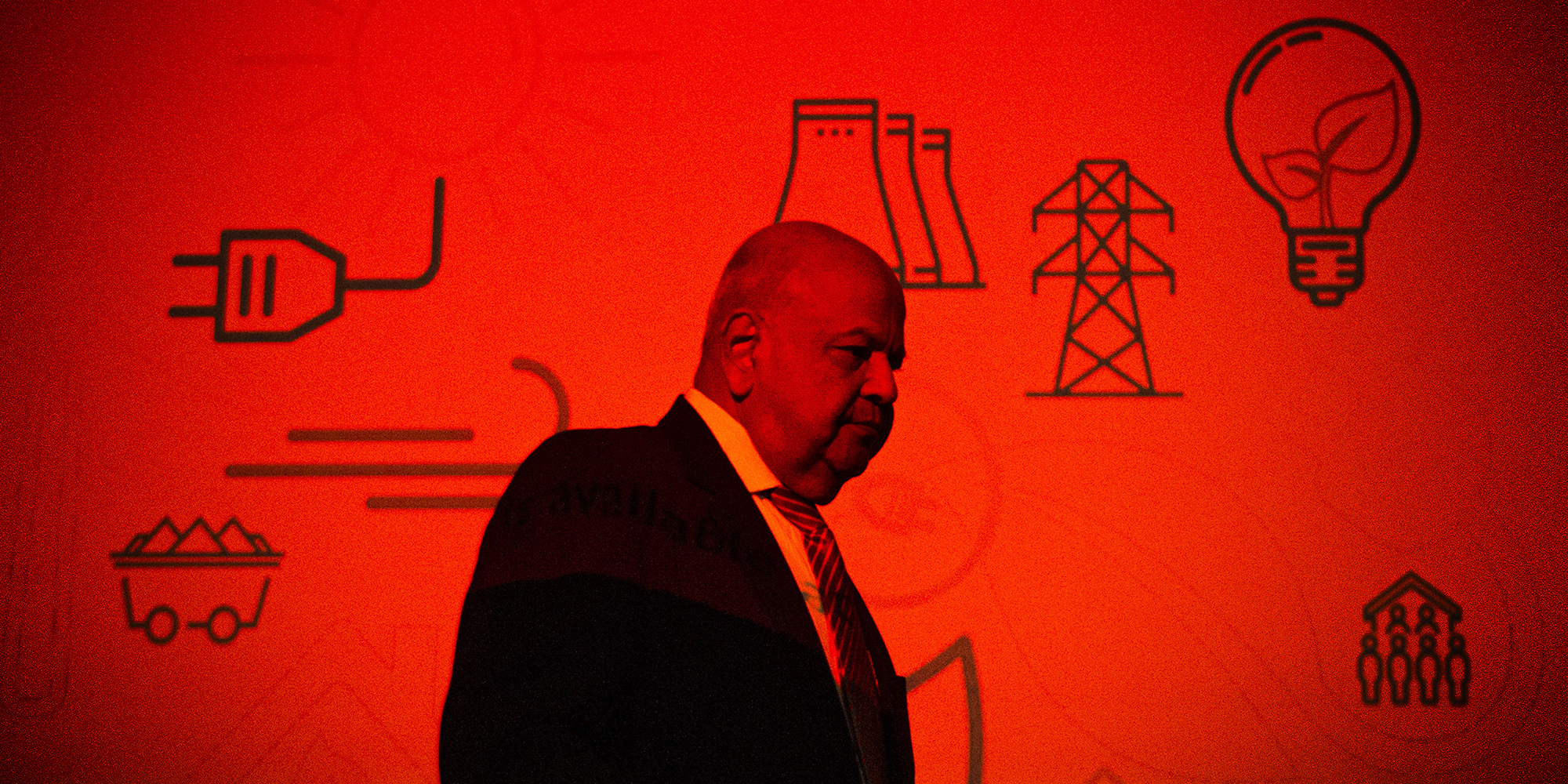Public Enterprises Minister Pravin Gordhan plans to double down on his argument that exempting facilities that provide crucial services — including hospitals, schools and police stations — from rolling blackouts has the potential to undermine the government’s plans to address the 16-year-long energy crisis.
Gordhan, who oversees the governance affairs of Eskom, plans to appeal against a ruling of the Pretoria High Court that forces him to take reasonable steps to shield service delivery facilities from rolling blackouts.
The court ruling was issued on Friday, 5 May and forced Gordhan to, within 60 days, ensure “sufficient supply or generation of electricity to prevent any interruption of supply as a result of load shedding” to hospitals and clinics, 23,000 public schools, and police stations. Many of these facilities do not have backup generators, and those that do have such backup sources do not have the budgets to fuel them with diesel, the cost of which has increased sharply in recent months.
Where it is impossible to isolate buildings that house these facilities from rolling blackouts, Gordhan was ordered to ensure that generators and alternative energy sources are secured to ensure an uninterrupted power supply.
Gordhan has taken umbrage at the court ruling, saying an unfettered power supply to the facilities in question poses a risk to the government’s “current efforts to stabilise the national grid”.
Arguably, the government’s “efforts” to stabilise the national grid have come to nought considering that blackouts have persisted for years and intensified in recent weeks. SA has been vacillating between blackout stages 4 and 6, owing to more breakdowns in Eskom’s coal-fired power stations.
The power cuts situation is set to worsen during the upcoming winter when Eskom will face increasing electricity demand from households and industries.
Read more in Daily Maverick: Eskom’s take on avoiding blackouts this winter: ‘extremely difficult’
Gordhan has inferred that the power situation might worsen if he has to comply with the high court’s order.
“While the department respects the independence of the courts, in this case the department believes that the judgment would have unintended consequences and undermine the very efforts to balance the protection of the rights that were ventilated in this case, with the need to stabilise and protect our grid infrastructure,” he said in a statement.
The judgment follows a court application by the United Democratic Movement (UDM), Inkatha Freedom Party, ActionSA, the National Union of Metalworkers and 15 others. UDM leader Bantu Holomisa believes that appealing against the court ruling signals that the government does not care about citizens’ or their rights to quality of life — made possible by a reliable electricity supply.
“This is a war against the people by a government of the people. They have betrayed the trust of the people,” said Holomisa, adding that the government had been “negligent for many years” on the energy crisis.
On Tuesday, Eskom issued a statement indicating its legal team was still studying the judgment and its implications. “Eskom’s position will be communicated as soon as this process is concluded,” it said.
The impact of blackouts on constitutional rights
During court proceedings, professionals in the health industry detailed that stop-start power surges caused damage to vital hospital equipment, putting the lives of patients at risk. Power cuts, the health professionals argued, interrupted accurate temperature regulation at intensive care units, which damages lifesaving equipment used for vulnerable patients such as newborns and the elderly.
At school, educators argued that township and rural schools were more negatively impacted by rolling blackouts as, in most cases, they didn’t have the financial resources for alternative electricity sources. This, the educators argued, was an infringement on the right to education. It was also argued that rolling blackouts infringed on the right to safety and security, with many police stations left unable to operate without electricity.
Judgment was reserved on Part B of the court ruling, where applicants want the court to hold President Cyril Ramaphosa legally responsible for the human cost of load shedding.
In the court ruling, Judge Norman Davis said that rolling blackouts interfered with rights enshrined in the Constitution, including the rights to life, safety/security and education at all levels.
“Often, due to no alternate sources of electricity being available (generally in contrast to private schools), these schools close down for a particular day, thereby not only depriving learners of education, but often also of their only guaranteed meal of the day. Iniquities created by our country’s past injustices are, by the simple act of load-shedding, being perpetuated against a vulnerable segment of society,” Davis wrote in the ruling.
An individual close to Gordhan told Daily Maverick that the minister would argue in appeal proceedings that he could not comply with the court’s ruling in 60 days because the state lacked competency, skills, responsiveness and public finances to shield facilities offering service delivery from rolling blackouts.
“The government and Eskom do not have the money to insulate every facility from load shedding. There are serious fiscal and capacity limitations,” said the individual. DM/BM





